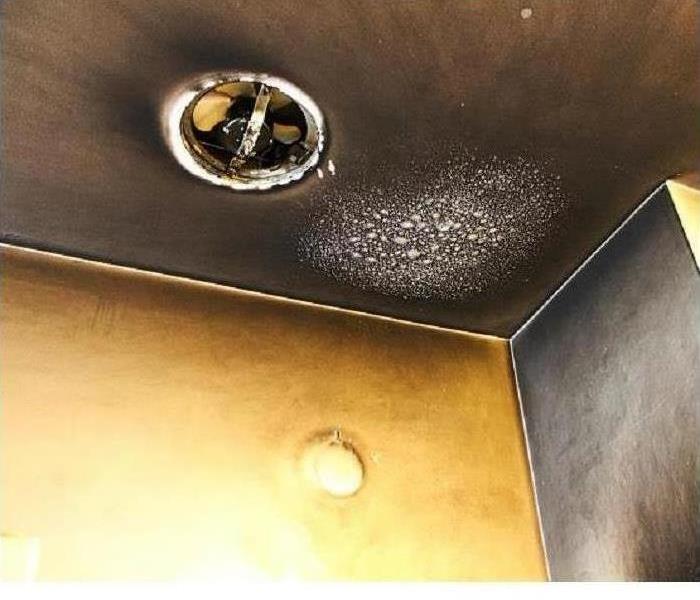Removing Wet Smoke During St. Lucie West Fire Restoration
7/22/2022 (Permalink)
Wet Smoke is a Fire Restoration Challenge
Wet smoke is the product of a slow-developing and moving fire in a household. Moist environments reduce the heat of this blaze, causing it to smolder rather than destroy impacted materials. Wet smoke damage causes:
- Thick deposits
- Moist soils
- Staining
- Smearing
What is the Best Cleaning Approach?
Cleaning up the thick and formidable wet smoke during fire restoration in St. Lucie West homes is not a universal system. Several factors play a role in what cleaning method should be selected to overcome thick soot soils on building materials. Some of these factors will include:
- Porosity - This term measures how porous a surface is and how sensitive it might be to smoke damage like soot, odors, and other fire loss effects. Drywall is highly absorbent, making it an easy target for deeply penetrative smoke solids and malodors.
- Cost of Replacement - In some situations, it is more cost-efficient to consider replacing a material even if it is not completely ruined by fire damage. Some customers or insurance providers might prioritize a faster completion time over the restoration of easily replaced building elements.
- Age of Material - The hosting material's age also plays a part in choosing surface cleaning, abrasive removal methods, or controlled demolition. Original building elements should be preserved when possible, and some more aggressive tactics might ruin the underlying substrate.
Irreparable Damage to Building Elements
Sometimes the inspection of the affected materials or the progression of corrosion with acidic soot deposits makes surfaces and building elements unsalvageable. When irreparable damage results to affected materials, controlled demolition must remove these impacted areas to allow for more direct drying before reconstruction.
Wet smoke is a common obstacle for house fires in our Florida communities. Humidity and other environmental factors play a part in slowing the pace of fire movement and combustion, creating more challenging soot deposits. Our SERVPRO of Port St. Lucie NE team can help with the extensive cleanup needed after a fire when you call (772) 266-2350.






 24/7 Emergency Service
24/7 Emergency Service
